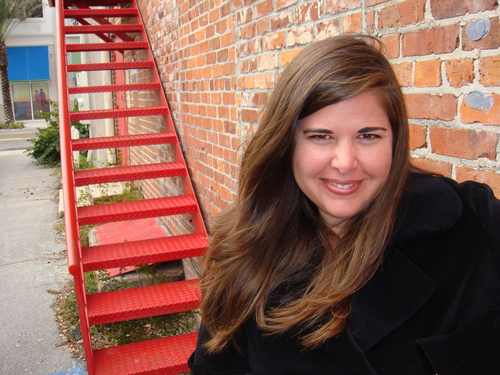Interview met Lisa Unger
 Al drie keer eerder reviewde FOK! een boek van Lisa Unger, de Amerikaanse schrijfster van spannende, maar ook vlotte en humoristische thrillers. Deze keer kreeg FOK! de kans om haar voor het verschijnen van haar nieuwe boek Breekbaar te interviewen.
Al drie keer eerder reviewde FOK! een boek van Lisa Unger, de Amerikaanse schrijfster van spannende, maar ook vlotte en humoristische thrillers. Deze keer kreeg FOK! de kans om haar voor het verschijnen van haar nieuwe boek Breekbaar te interviewen.
How do you start writing your books, do you create a timeline with events that might happen or do you start writing and see where it ends?
Though the original inspiration for a novel might come from anywhere – a line of poetry, a news story, even a song or a photograph, each novel begins with a character voice, someone I hear in my head. I write without an outline. When I begin a novel I have no idea what will happen day to day, who will show up and what they might do. I write for the same reason that I read, because I want to know what’s going to happen.
What part of Fragile are you the most proud of?
It’s odd to think of myself as being proud of any one aspect of a novel. I am so deep inside each book that it’s hard to look at it objectively. Each book is of me, but apart from me. I am proud of my novels in the same way that I am proud of my daughter; she’s wonderful – smart, funny, loving, but that’s about her, not about me. What motivates me as a writer, is that I try every day to be a better writer than I was yesterday. So I am proud that each of my novels represents the best of my abilities at the time of its writing. I hope that each book I write is better than my last.
For Die for you you were heavily inspired by Prague, what was the big inspiration for Fragile?
Fragile is very loosely based on a real event from my past. In the town where I grew up, a girl I knew was abducted and murdered. This story has turned up in partials over the years, the voices very different from those that eventually allowed me to tell this story. It was interesting that it took older, more mature people with distance from the tragedy to make sense of it. I don’t think I realized until I wrote this novel how greatly I was impacted by the real life event upon which the book is based.
I learned with Fragile that, as a writer, you can have ambitions to tell a story and not have the talent or the skill to tell it well. I think it took me eight novels to learn what I needed to learn – about myself, about the craft -- to write this book.
What kind of writer do you describe yourself as?
I am a writer of story, an observer of character, an explorer of the human condition. My fiction is fairly dark, but I’m not sure I’d call it mystery, or thriller, or crime fiction – though it has strong elements of all of those things. In a certain sense, it is up to my readers to say what kind of writer I am.
Did becoming a mother change the way how characters in your books interact with each other?
Having my daughter changed everything about me. Becoming a mother changed the way I see the world, gave me deeper insight into and greater empathy for the human condition. So yes, I’m sure it has changed my fiction. I think for the better. As a mother, I have a richer knowledge base than I did before.
What do you think about books that get transformed to film and which of your own books would you like to be made into a film?
I think books and films are two very different art forms. One does not necessarily translate well into the other. But when it does work (as it did in Silence of the Lambs or The Shining) it’s magic. There have been options on Black out and Beautiful lies. Not much has come from either option yet. But it is something I’d like to see happen eventually. I think all my novels would lend themselves in certain ways to film, though much would be lost I’m sure. I think I could find peace with the translation, if it was true to the essence of the novel.